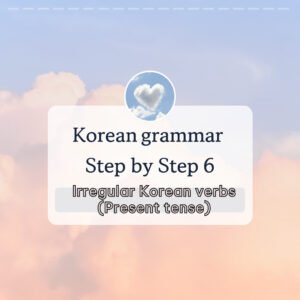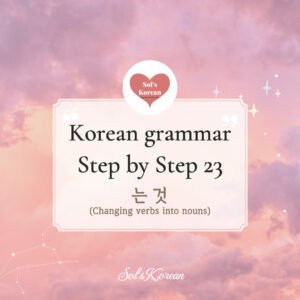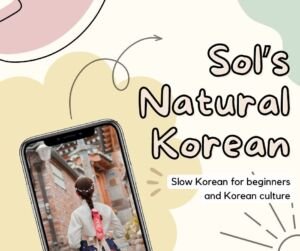Don’t judge me! | How to express ‘Judge’ in Korean!
Do you know how to say ‘Don’t judge a book by its cover’ in Korean?
Let’s learn how to express ‘Judge’ in Korean today!
”Judge”
When expressing “judge” in Korean, the translation and usage can vary depending on the context.
First, you can use : 판단하다
✨ Let’s take a look examples!✨
Don’t judge a book by its cover.
– 겉모습만 보고 판단하지 마세요.
* “겉모습” means “appearance.”
You shouldn’t judge people too quickly.
– 사람들을 너무 성급히 판단하면 안 돼요.
I can’t judge if this is good or bad yet.
– 아직 이게 좋은지 나쁜지 판단할 수 없어요.
Who are you to judge me?
– 네가 무슨 자격으로 나를 판단해? / 네가 누군대 나를 판단해?
Don’t judge someone based on one mistake.
– 사람을 단 한 번의 실수로 판단하지 마세요.
I also use “편견”, which translates to “prejudice” or “bias” in English.
When I want to express that I don’t judge others, I often say “편견이 없다,” which literally means “there’s no bias.” This phrase aligns closely with being free of prejudice or judgment.
In a broader sense, “편견이 없다” can also be interpreted as being “open-minded.” It conveys the idea of being free from preconceived notions, stereotypes, or judgmental attitudes.
How can we express “judgmental people” in Korean?
The phrase “판단하는 사람들” feels awkward and unnatural in most contexts. Instead, we can say:
“편견이 심한 사람들“ (People with strong prejudices)
“남들을 쉽게 비난하는 사람들” (People who easily criticize others)
💡 Note: 비난하다 means “to criticize” and often carries a negative tone.
As a casual slang term, we often use “꼰대” to describe people who are judgmental or too rigid, especially older people who are stuck in their ways. It’s commonly used in daily conversations and can even be jokingly compared to the English word “boomer.”
💡 Boomer = 꼰대! (it’s a perfect match!)
✨ Let’s take a look examples!✨





